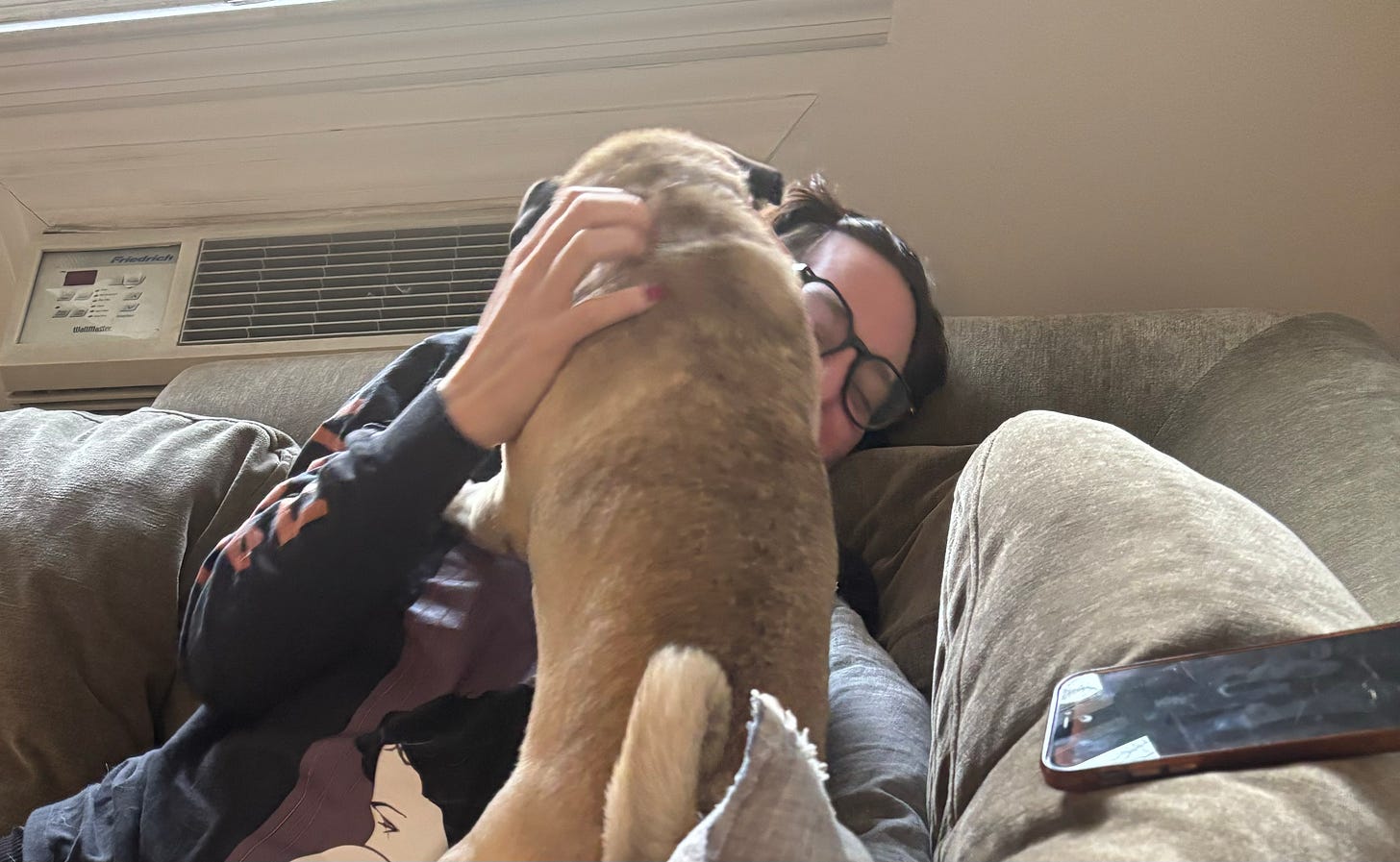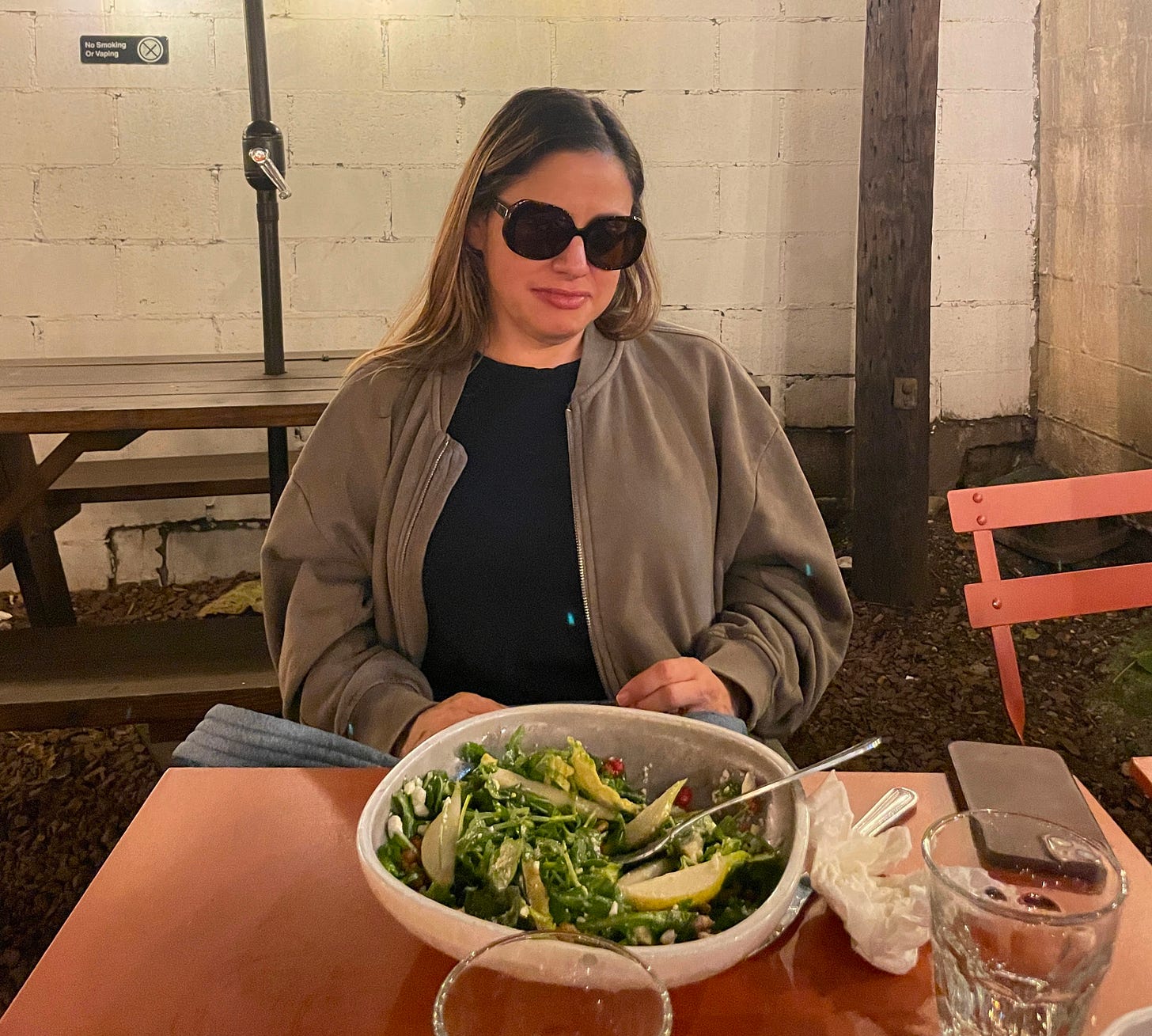The earliest iteration of my social life in New York City is now a relic of its time. On weeknights and some weekends, writer and editor types from a variety of fields — bloggers, social media editors, journalists, book authors and other publishing types — would congregate at the Housing Works bookstore in Manhattan for book and essay readings.
It was on one of those nights that I first met my friend Maris Kreizman, who for a reason neither of us can remember, recommended I read Leslie Jamison’s “The Empathy Exams” and “On Immunity” by Eula Biss. “The Empathy Exams” and “Having and Being Had,” another book by Biss, coincidentally sit side-by-side on my bookshelf now, more than 10 years later.
I recently asked Maris, who I didn’t grow close with until many years after I recall our first interaction, what books she would recommend to me now that she knows me so well.
“Uh, I’d recommend ‘The Empathy Exams’ and ‘On Immunity,’” she said. “Look at that: I fucking killed it.”
Maris did, in fact, clock my whole vibe very quickly and regularly sends me home from her apartment with books I never would have thought to read, but leave me in shambles when I finally pluck them off my bookshelf. She nearly killed me when she finally got me to read “All My Puny Sorrows” by Miriam Toews!
Although I get personalized curation, Maris is the most trusted literary tastemakers for many people I know; there’s something for everyone in The Maris Review.
But now, Maris is the one who has a hyped-up book coming out. In “I Want to Burn This Place Down,” she explores her own journey of disillusionment with the government systems she’d been raised to see as reliable.
She writes about being 13 years old at the 1992 DNC, the lifelong anxiety of being a Type 1 Diabetic in a country that ties healthcare to employment, and going to an Ivy League college with a member of the Trump family. Ultimately, she is angry at being misled by propaganda and the promise of meritocracy.
Yet she has also learned to reorient herself toward community building and the reality that her real allies are her neighbors. (Except for Chuck Schumer, who lives sort of down the street from Maris and is her current target for that flammable rage.)
After reading “I Want to Burn This Place Down” I had some questions. Maris and I had a nice conversation on her couch while her pug, Maggie, pinned me down and slobbered all over my face.
So the book is basically about structural disillusionment. When did you realize that your perspective had changed?
One of the difficult parts of writing this book is that it didn't have one aha! moment. It was a gradual thing, and Trump's first presidency didn't help. But I think the first time I thought, “Oh no, everything I was taught was wrong” was when I found out that the Juvenile Diabetes Foundation takes money from big pharma while people were dying from lack of access to insulin.
I was like: Well, if that is a thing that I have been fighting for my entire life, then what the fuck else did I get wrong?
Your experience is interesting to me because I experienced my first huge political disillusionment in the Obama years. I didn’t understand what was going on in 2003, and it was the Obama years that fooled me.
That’s, um… I’d say I’m jealous.
What were the other moments that you would say started to make you question the worldview you’d been raised on?
The clearest answer is that I am from a middle class, suburban background. I was taught that if you work hard enough, you can get anything. And then I get to my Ivy League college, and Donald Trump Jr. is in the same class as I am. It was the first time where I had to revise my idea of what meritocracy is. I realized that I got to hang around with rich people because I was smart enough. I was contorting myself to try to hold on to the idea that things worked a certain way.
One of the things I think about all the time is that in the age of the internet, it is so much easier to be a critical thinker than in the time of my childhood. It was really hard to find information beyond what you were told. I just didn’t question it.
And one of the things that was scary about writing this book is that I'm sure that there are going to be so many people who are like, “Duh, you're an idiot.” And it's like, “Well, yeah,” but I have to imagine that there are other people like me out there.
Hello, Maggie. Hellooooo, Maggie.
I think your book is hitting at a time when a lot of people are discovering or reliving or feeling a new depth of political disillusionment. If you had advice for someone — for an adult who's been around for a while — who is dealing with a complete disillusionment of everything that we were told, what advice would you give them?
I would say: it's never too late to become radicalized.
I was part of the group of people who, after Trump was elected, signed up for every Democratic update and gave to every single fucking Democratic campaign, and I learned through experience and from listening to other people that this is certainly not the way. Now I try to do things where I know I can uniquely make an impact in my community — in the book world, with other Diabetics — rather than trying to take on everything.
And that money went on to fund… what’s the word I’m looking for? It’s not impotence. Hm, I think that might be the word. It’s impotence.
It’s like they got a whole bunch of money to sit around and do fucking nothing.
Can you tell me more about growing up in the time of Stranger Danger and how you learned to not be scared in New York City? Because I always think about how hard it is to explain to people who don't live here that it's actually just fine. And I don’t think that before reading your book, I understood what an impact that messaging has had on our country.
it made you distrust anyone around you. Anyone you didn’t know could be a potential killer, abuser, blah, blah, blah. I don’t know when I first learned the statistics about how much violence comes from people you don’t know versus people you do, but it’s not even close.
So when I first moved to New York, I was really guarded. I knew I was living in a dangerous city.
I wasn't making eye contact. I knew how to hold my keys in a certain way. Then there were just times where it was like, “Oh, well, my experience is not like what people who don't live here think is happening,”
And I think living with Josh (Gondelman, her husband) profoundly changed how I see the world, because I see the way he sees the world. He will smile at everyone, and it's more than a smile. He is generous to everyone, and I see how much better and easier it is to live in the world that way.
Do you think it's fair to say that the media of the 1980s created a generation of people who are just antisocial? Not in the like, hermit crab way. But in the like, scared of other people way.
I think it was the media, plus just not having as many ways to find different stories. Plus, the other thing — and I’m not ashamed to say this — is that Twitter radicalized me. Twitter was the first place where I learned not to trust every headline.
I think it democratized different perspectives. It was a radical thing to have a place where a lot of marginalized people could just circumvent gatekeepers. And a lot of those people were very willing to put themselves out there and explain their lived experiences to strangers, which I think is a very generous thing to do.
It was incredibly generous! And I certainly don’t want to frame it around my education, but it was really generous that people were up for explaining things that probably at this point in time should not have to be explained. They’re things that people should just fucking get, but those perspectives weren’t always easy to find.
I thought it was interesting that you ended the book with sort of an ambiguity, or a lingering question about what you want to do next. I think there's not a lot of clarity about what women without children or CEO positions should do with our lives, because we've been told that life only has meaning if you're dedicated to at least one of those — if not both. Who have you looked to to see how to like as a guide for this?
I don't have that many great guides. I really don't, and I don't know if I have that many people in my life who are not defined by one or the other.
Yeah, I can't figure out, aside from you, basically who to look to… to figure out what to do when you don't want to be any of those things.
I think that's right. I think that if we had decided to have children, I could offload all of my worries for myself onto my children. I cannot imagine being a parent at this stage in the game and through the second Trump presidency. Worrying about children getting their vaccines is bad enough. But I guess it never really occurred to me that there could even be a model.
So, given our current circumstances, this massively tumultuous political moment, what do you think the Maris of the future looks like? You spent the book examining Maris of the past. What's the Maris of now?
The Maris of now knows that that community is the answer in a lot of ways, or at least I know what's important to me and what's worth fighting for.








